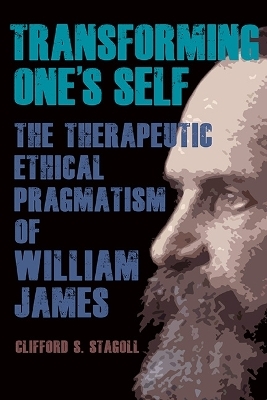
Transforming One's Self
The Therapeutic Ethical Pragmatism of William James
Seiten
2024
State University of New York Press (Verlag)
978-1-4384-9327-5 (ISBN)
State University of New York Press (Verlag)
978-1-4384-9327-5 (ISBN)
A fresh and rigorous interpretation of William James's ethical theory, showing how experimenting with life's opportunities can transform one's self and life.
William James (1842–1910) authored some of America's most original and evocative philosophy and psychology. Until recently, however, his work in ethics attracted little interest, despite suggestions from such distinguished peers as John Dewey that ethical themes suffused his writings. Taking those suggestions seriously, Clifford S. Stagoll provides an original and rigorous interpretation of James's ethics as a response to the socio-economic circumstances of his day, derived from key themes in his metaphysics, philosophical psychology, philosophy of religion, and pedagogical theory. By considering these apparently disparate projects together, Stagoll shows how James's recommendations for pursuing a richer, more rewarding life—an ethics in the classical sense—are justified by intricate and sophisticated analyses of how we think, act, and conceive of ourselves. For James, making a habit of experimenting with life's myriad opportunities is not just a way to counter thinking that has grown too rigid, but a crucial precondition for making the most of one's life and self.
William James (1842–1910) authored some of America's most original and evocative philosophy and psychology. Until recently, however, his work in ethics attracted little interest, despite suggestions from such distinguished peers as John Dewey that ethical themes suffused his writings. Taking those suggestions seriously, Clifford S. Stagoll provides an original and rigorous interpretation of James's ethics as a response to the socio-economic circumstances of his day, derived from key themes in his metaphysics, philosophical psychology, philosophy of religion, and pedagogical theory. By considering these apparently disparate projects together, Stagoll shows how James's recommendations for pursuing a richer, more rewarding life—an ethics in the classical sense—are justified by intricate and sophisticated analyses of how we think, act, and conceive of ourselves. For James, making a habit of experimenting with life's myriad opportunities is not just a way to counter thinking that has grown too rigid, but a crucial precondition for making the most of one's life and self.
Clifford S. Stagoll is Honorary Research Fellow in Philosophy at The University of Western Australia. He is the coeditor (with Michael P. Levine) of Pragmatism Applied: William James and the Challenges of Contemporary Life, also published by SUNY Press.
Preface
Acknowledgements
Abbreviations
Introduction: William James’s Ethics in the Pragmatist Tradition
1. Locating James’s Therapeutic Project
2. Uncovering Life’s Potential: Relational Experience
3. Defining Life’s Potential: The Self-Transforming Self
4. Realizing Life’s Potential: An Ethics of Habit and Creative Willing
Conclusion: Recovering James’s Therapeutic Ethics
Notes
Bibliography
Index
| Erscheinungsdatum | 04.01.2024 |
|---|---|
| Reihe/Serie | SUNY series in American Philosophy and Cultural Thought |
| Zusatzinfo | Total Illustrations: 0 |
| Verlagsort | Albany, NY |
| Sprache | englisch |
| Maße | 152 x 229 mm |
| Gewicht | 227 g |
| Themenwelt | Geisteswissenschaften ► Philosophie ► Ethik |
| Geisteswissenschaften ► Psychologie ► Sozialpsychologie | |
| ISBN-10 | 1-4384-9327-4 / 1438493274 |
| ISBN-13 | 978-1-4384-9327-5 / 9781438493275 |
| Zustand | Neuware |
| Informationen gemäß Produktsicherheitsverordnung (GPSR) | |
| Haben Sie eine Frage zum Produkt? |
Mehr entdecken
aus dem Bereich
aus dem Bereich


